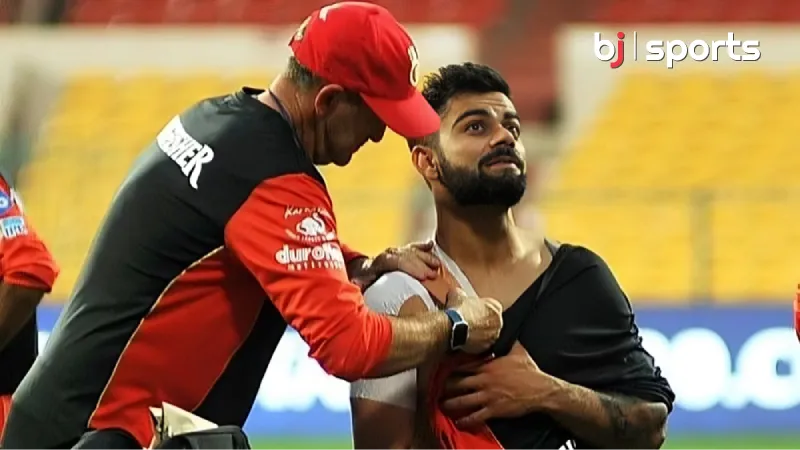
Exploding sixes, dazzling catches, and nail-biting finishes – the IPL is a cricket fanatic’s paradise. But beneath the glitz and glamour lies a persistent challenge: player unavailability due to international commitments. The IPL’s window coincides with a packed cricketing calendar, leading to a clash between a player’s national duty and their IPL franchise. This blog post dives into the complexities of this situation and explores its impact on teams, the tournament, and the fans.
Clashing Schedules: A Balancing Act
The IPL unfolds amidst a whirlwind of bilateral series, international tournaments, and marquee ICC events. International players are the backbone of the IPL, but their national commitments often clash with IPL fixtures. This creates a dilemma for both players and franchises. Players must juggle their national pride with their IPL contracts, while franchises grapple with the absence of key players during crucial stages.
Explore Further:- Game Changer The Impact of the Indian Premier League
Fatigue and Injuries: The Price of a Demanding Schedule

The modern cricketing calendar is relentless, demanding participation in multiple formats throughout the year. This grueling schedule takes a toll on players, leading to fatigue and increased risk of injuries. As a result, players might require rest or rehabilitation, forcing them to miss IPL matches. This not only disrupts team composition but also affects the overall quality of the tournament by potentially sidelining players in peak form.
National Priorities: The Pinnacle of Cricket
For any cricketer, representing their country is the ultimate honor. National cricket boards prioritize international fixtures, and players are expected to be available for national duty. This often means players are called up for national matches, leaving their IPL franchises shorthanded for crucial encounters. While this underlines the significance of international cricket, it presents a significant challenge for IPL franchises in terms of team planning and strategy.
Disrupted Balance: The Domino Effect of Missing Players
Player unavailability due to international commitments can disrupt the balance and dynamics of IPL teams. The absence of key players, especially those who are pivotal to their team’s batting line-up or bowling attack, can create a void that’s difficult to fill. Franchises must scramble to find suitable replacements or make tactical adjustments to compensate for the missing players, which can be a daunting task.
Fan Disappointment: Missing Out on the Clash of Titans
Fans eagerly anticipate witnessing their favorite international stars in action during the IPL. However, when players are unavailable due to international commitments, it can lead to disappointment and frustration. Fans miss out on the opportunity to witness the clash of titans and the thrill of seeing their cricketing idols play alongside each other. This can negatively impact the overall fan experience and potentially even affect viewership of IPL matches.
Strategic Planning and Management: The Key to Adaptability
IPL franchises need to be proactive in planning and managing their squads, considering the potential unavailability of players due to international commitments. This involves careful player recruitment, focusing on versatility within the squad, and strategizing squad rotations. Additionally, having contingency plans in place ensures the team remains competitive even in the absence of key players. Astute decision-making and adaptability on the part of team management are crucial in navigating this challenge.
Conclusion: Finding the Equilibrium
The IPL undeniably brings together the best cricketing talent from around the world. However, player availability due to international commitments remains a persistent challenge. Balancing the demands of international cricket with the IPL is a delicate task for players, franchises, and cricket boards. Finding a solution that allows players to participate in both international and IPL matches without compromising their well-being and the quality of the tournament is a complex issue that requires careful consideration.
Ultimately, striking a balance between international and domestic cricket is crucial to maintain the integrity and success of both formats of the game. Perhaps, a more streamlined international calendar or the continuation of innovative concepts like the “Impact Player” rule could be potential steps in the right direction.
 Record Performers: Top Record Holder Players in the Abu Dhabi T10 League
Record Performers: Top Record Holder Players in the Abu Dhabi T10 League Record-Breaking Performances in BBL: The Players Who Redefined the Game
Record-Breaking Performances in BBL: The Players Who Redefined the Game The Captain’s Impact: The Most Successful Captain in Abu Dhabi T10 History
The Captain’s Impact: The Most Successful Captain in Abu Dhabi T10 History The Best Young BBL Stars to Watch Out for in BBL 2024-25: Next Generation of Emerging Talent
The Best Young BBL Stars to Watch Out for in BBL 2024-25: Next Generation of Emerging Talent

